Did you know that there are only 200 irregular verbs in German? Today, we’re going to tackle irregular German verbs. But don’t worry: I’ve developed a simple technique to help you master them quickly and efficiently.
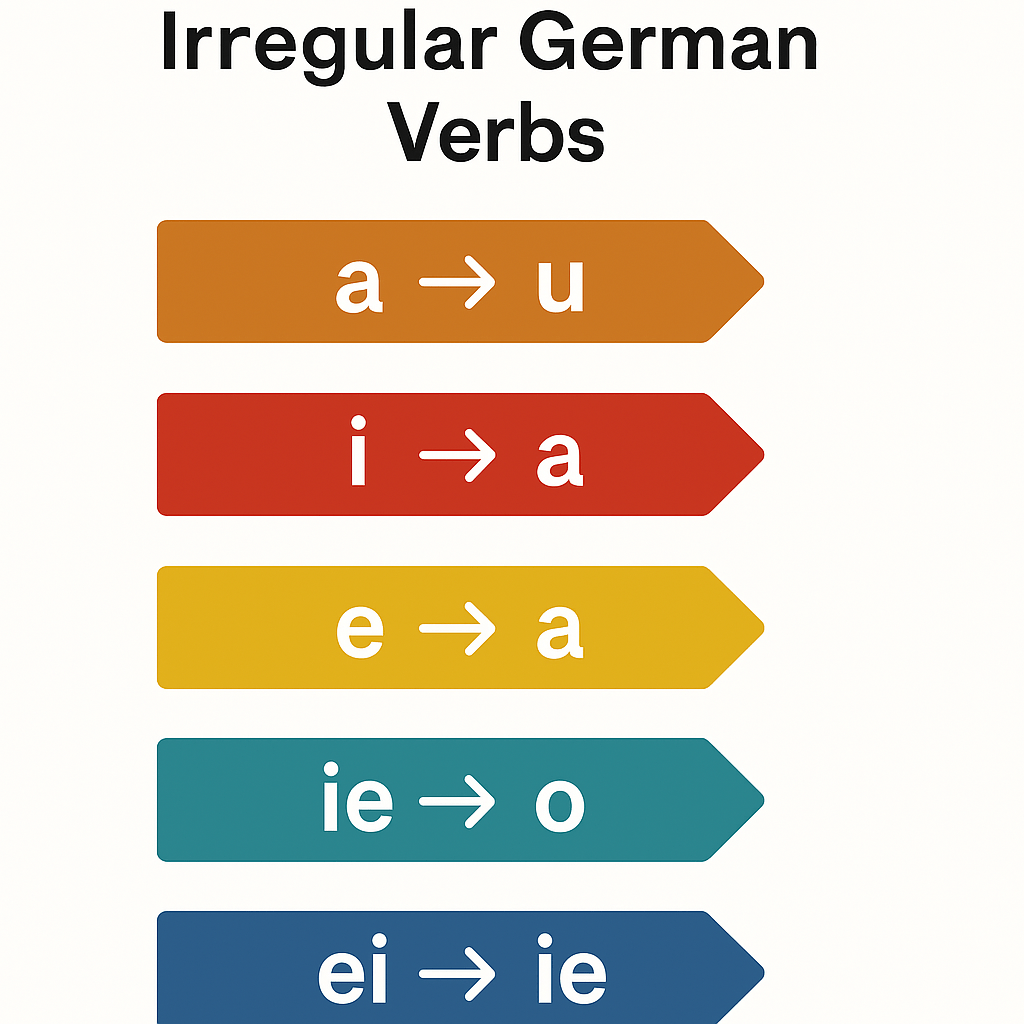
Grouping Irregular German Verbs by Vowel Change Patterns
Irregular verbs are not as irregular as you might think. Most of them follow patterns that make them easier to learn. There are 5 main groups of irregular verbs, based on common vowel-change patterns in the simple past tense. And to make things even easier, several irregular German verbs follow the same vowel change patterns as their English counterparts. In English, we have sing, sang sung. And in German, it’s singen, sang, gesungen. Not too difficult, right? The 5 main vowel changes are:
- a → u
- i → a
- e → a
- ie → o
- ei → ie
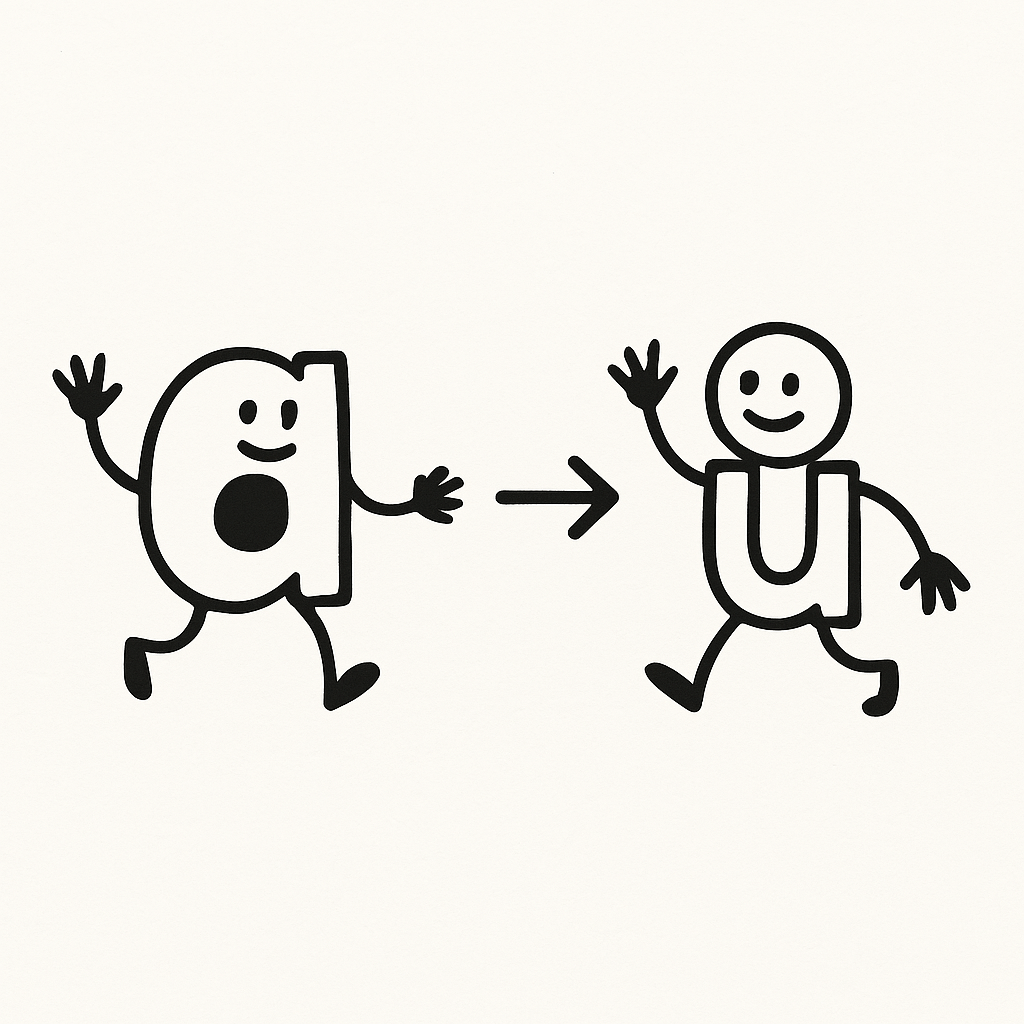
Group 1: The a → u Pattern
These verbs show a vowel change from “a” in the infinitive to “u” in the simple past. The past participle forms don’t change vowels. Let me show you what I mean.
| Verb | Simple Past | Past Participle | Meaning |
| fahren | fuhr | gefahren | to drive |
| graben | grub | gegraben | to dig |
| laden | lud | geladen | to load |
| schlagen | schlug | geschlagen | to hit |
| tragen | trug | getragen | to carry/wear |
| wachsen | wuchs | gewachsen | to grow |
| waschen | wusch | gewaschen | to wash |
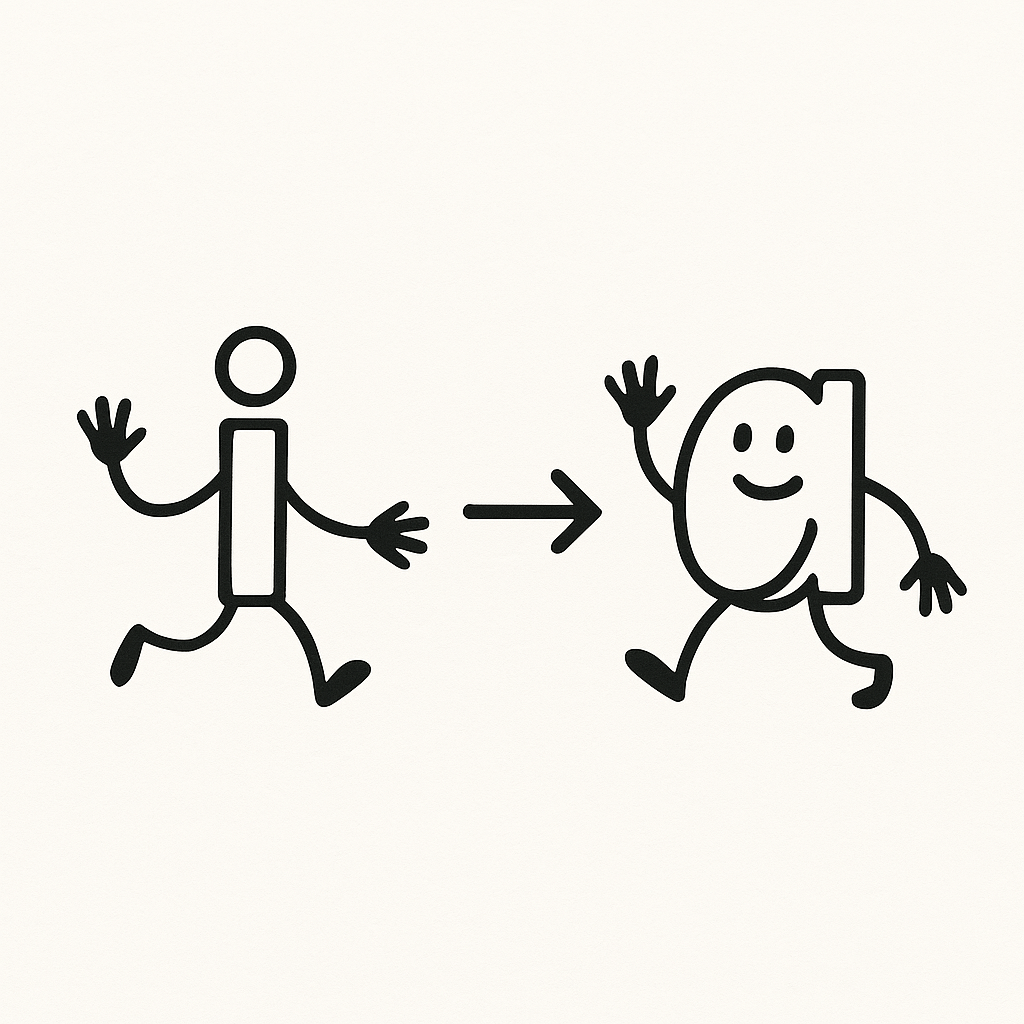
Group 2: The i → a Pattern
These verbs change the stem vowel from “i” in the infinitive to “a” in the simple past. The past participles vary and some verbs have consonant changes.
| Verb | Simple Past | Past Participle | Meaning |
| singen | sang | gesungen | to sing |
| binden | band | gebunden | to tie |
| bitten | bat | gebeten | to request/ask |
| bringen | brachte | gebracht | to bring |
| finden | fand | gefunden | to find |
| gewinnen | gewann | gewonnen | to win |
| klingen | klang | geklungen | to sound |
| schwimmen | schwamm | geschwommen | to swim |
| schwingen | schwang | geschwungen | to swing |
| singen | sang | gesungen | to sing |
| sinken | sank | gesunken | to sink |
| sitzen | saß | gesessen | to sit |
| springen | sprang | gesprungen | to jump |
| stinken | stank | gestunken | to stink |
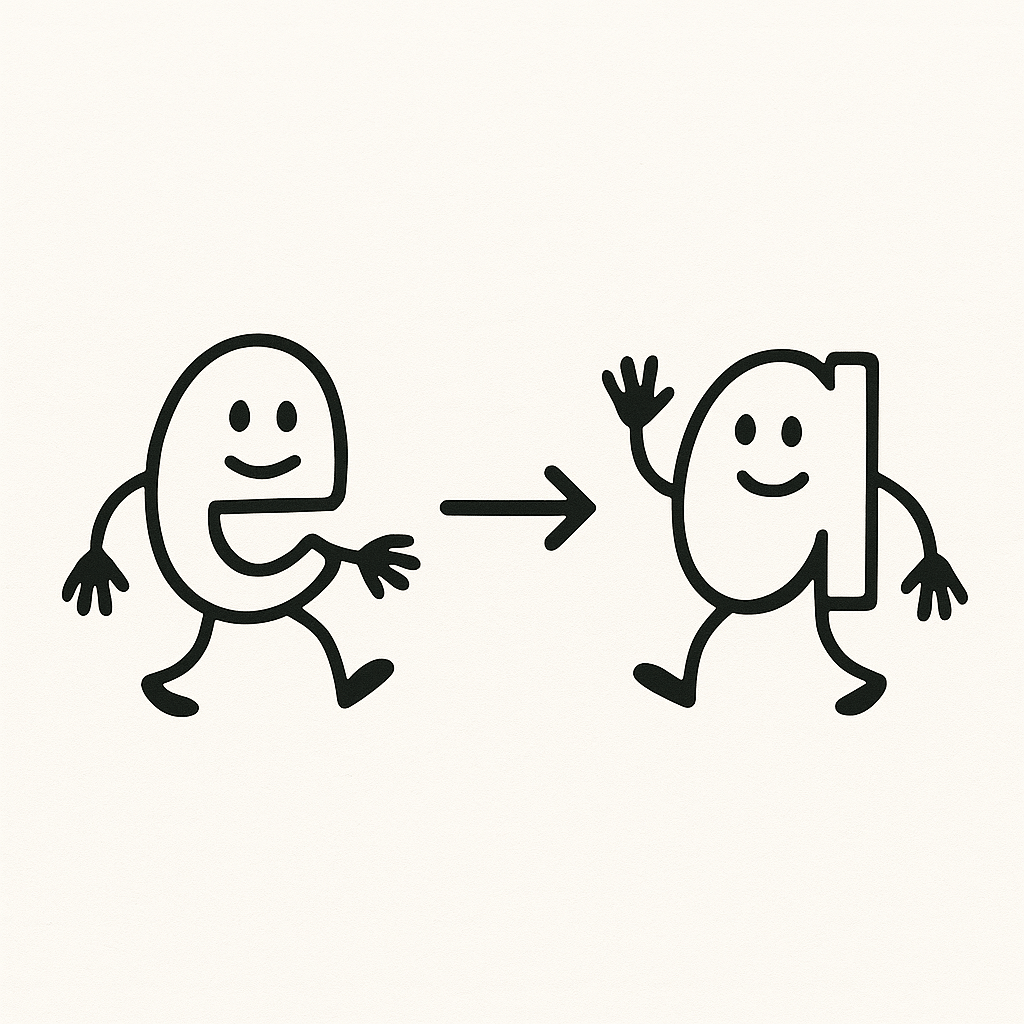
Group 3: The e → a Pattern
Here the vowel “e” in the infinitive shifts to “a” in the simple past.
| Verb | Simple Past | Past Participle | Meaning |
| befehlen | befahl | befohlen | To command |
| brechen | brach | gebrochen | To break |
| brennen | brannte | gebrannt | To burn |
| denken | dachte | gedacht | To think |
| empfehlen | empfahl | empfohlen | To recommend |
| essen | aß | gegessen | to eat |
| geben | gab | gegeben | To give |
| gelten | galt | gegolten | To be valid |
| geschehen | geschah | geschehen | To happen |
| helfen | half | geholfen | To help |
| kennen | kannte | gekannt | To know |
| lesen | las | gelesen | to read |
| messen | maß | gemessen | To measure |
| nehmen | nahm | genommen | To take |
| nennen | nannte | genannt | To name |
| rennen | rannte | gerannt | To run |
| sehen | sah | gesehen | To see |
| senden | sandte | gesandt | To send |
| sprechen | sprach | gesprochen | To speak |
| stehen | stand | gestanden | To stand |
| stehlen | stahl | gestohlen | To steal |
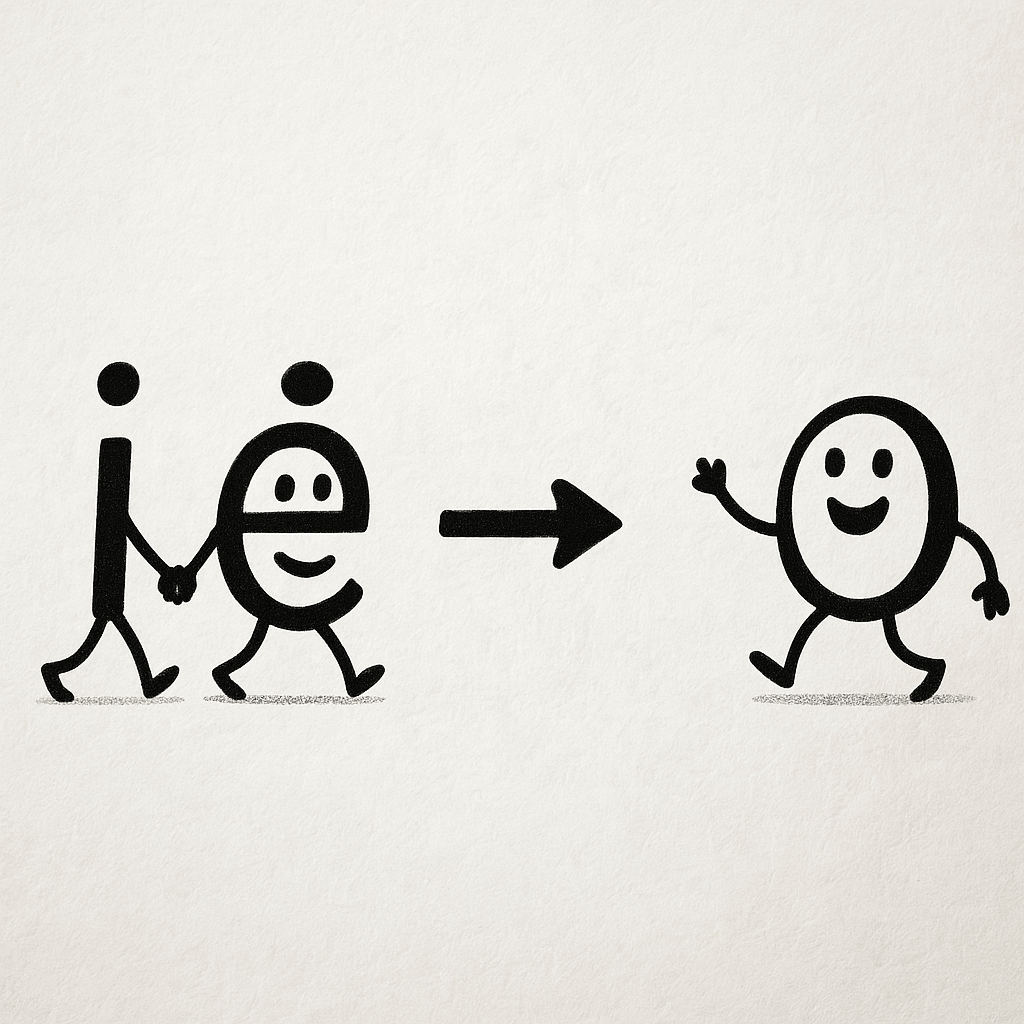
Group 1: The ie → o Pattern
These verbs show a vowel change from “ie” in the infinitive to “o” in the simple past and also in the past participles.
| Verb | Simple Past | Past Participle | Meaning |
| biegen | bog | gebogen | To turn |
| bieten | bot | geboten | To offer |
| fliegen | flog | geflogen | To fly |
| fliehen | floh | geflohen | To flee |
| fließen | floss | geflossen | To flow |
| frieren | fror | gefroren | To freeze |
| genießen | genoss | genossen | to enjoy |
| gießen | goss | gegossen | To water/pour |
| kriechen | kroch | gekrochen | To crawl |
Group 5. ei → ie Pattern
These irregular German verbs show a vowel change from “ei” in the infinitive to “ie” in the simple past and also in the past participles.
| Verb | Simple Past | Past Participle | Meaning |
| bleiben | blieb | geblieben | To stay |
| leihen | lieh | geliehen | To lend |
| reiben | rieb | gerieben | To rub |
| scheiden | schied | geschieden | To separate |
| scheinen | schien | geschienen | To seem |
| schreiben | schrieb | geschrieben | To write |
| schreien | schrie | geschrie(e)n | to yell |
| steigen | stieg | gestiegen | To climb/rise |
| treiben | trieb | getrieben | To urge |
| vermeiden | vermied | vermieden | To avoid |
| verzeihen | verzieh | verziehen | To forgive |
There are still a few irregular German verbs that change forms in different ways. But by learning these 5 main vowel changes, you can memorize a majority of the irregular verbs much faster and easier. Practice makes perfect so remember to use irregular German verbs on a regular basis to become familiar with them. Next, check out these irregular German verbs examples and practice exercises.

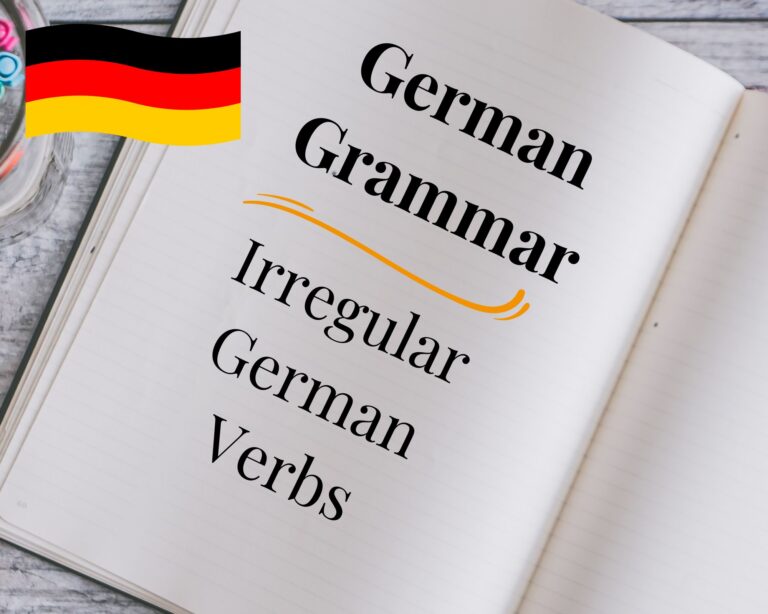
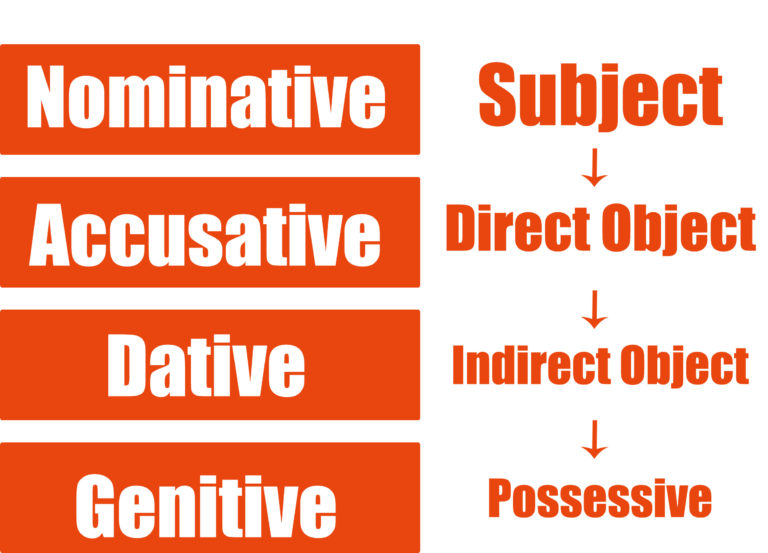

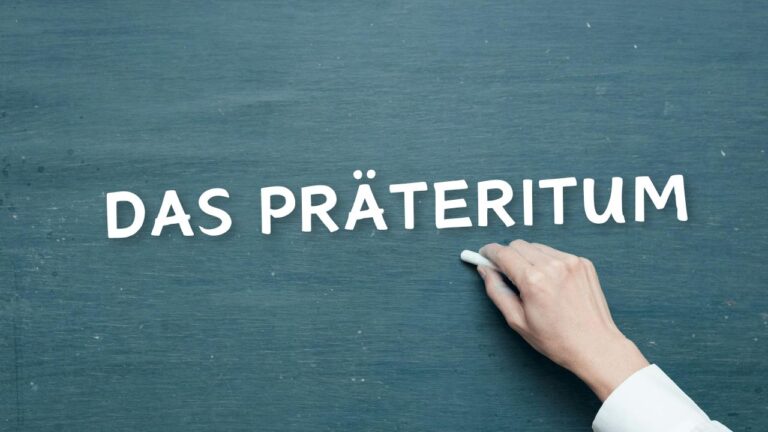

Sweet internet site, super style and design, rattling clean and use genial.